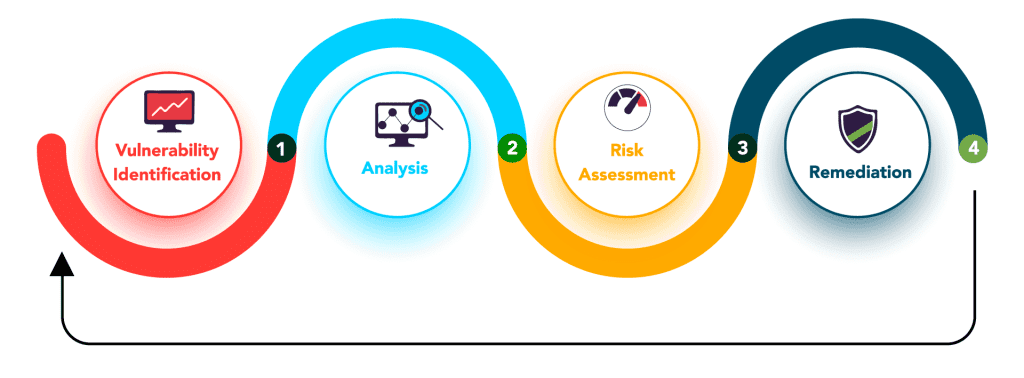Why do you need penetration testing? Penetration testing is a critical part of any strong cyber security strategy. It helps organisations identify and fix security vulnerabilities before attackers can exploit them. By simulating real-world cyber attacks, penetration testing shows you where your defences are weak — and how to strengthen them.
Experts recommend conducting a penetration test at least once a year. You should also run tests after major changes, such as software updates, system upgrades, or infrastructure changes. Why? Because each change can introduce new risks.
Cyber threats are evolving faster than ever. From ransomware attacks to insider breaches, organisations of all sizes are potential targets. Penetration testing — or “pen testing” — is one of the most effective tools in your cyber security toolkit. By simulating real-world attacks, it helps you uncover vulnerabilities, prevent costly data breaches, and stay compliant with regulations.
According to the UK Government’s Cyber Security Breaches Survey 2024, 50% of medium businesses and 70% of large businesses experienced some form of cyber attack in the past 12 months. The average cost of a cyber attack for a medium-sized firm? Over £19,000. And yet, many breaches were preventable with proactive measures like penetration testing.
Let’s explore why you need it — and what it protects you from.

Why do you need penetration testing?
Uncover Vulnerabilities and Prevent Breaches:
Many organisations operate under the assumption that their defences are strong — until they’re proven wrong. Penetration testing identifies weaknesses in your IT infrastructure before malicious actors do. Whether it’s unpatched software, misconfigured servers, or vulnerable endpoints, pen testing simulates how a real attacker might break in.
This proactive approach helps minimise the risk of downtime, financial loss, and reputational damage. Real-time reporting and expert analysis empower your team to fix issues before they become breaches.
Case in point:
In 2023, a ransomware attack on the UK-based software company Advanced crippled services for the NHS, exposing critical vulnerabilities. An internal investigation revealed that earlier penetration testing could have helped flag the exploited vector — an unpatched vulnerability in their remote access systems.
Evidence Compliance:
Pen testing isn’t just good practice — it’s often a regulatory requirement. Whether you need to meet ISO 27001, SOC 2, HIPAA, or PCI DSS standards, regular penetration testing provides clear evidence that your organisation is identifying and addressing risks.
Compliance isn’t just about ticking boxes. It’s about proving that you take data protection seriously. Penetration test reports can serve as crucial documentation during audits and inspections, helping you demonstrate that your security controls are robust and up to date.
A 2022 study by the National Cyber Security Centre (NCSC) showed that organisations meeting regular pen testing benchmarks were 40% less likely to suffer a major breach compared to those that didn’t. These figures have become more significant over the recent years.

Grow Your Business:
Large clients and government contracts are no longer awarded solely based on price or product. Security assurance is a key procurement factor.
Penetration testing helps you:
- Satisfy due diligence during vendor assessments.
- Demonstrate you have enterprise-grade security.
- Avoid delays in contract negotiation caused by unanswered security queries.
In 2021, a UK SaaS startup lost a major fintech client after failing a vendor security review. With no recent penetration test on file, the client flagged the startup as a “risk” — even though the product was sound. The startup later implemented annual pen testing and won new clients in the same sector.
Build Customer Confidence
Trust is everything in the digital economy. Customers, investors, and partners want to know that their data is safe in your hands. Penetration testing shows that you’re not just talking about security — you’re actively investing in it.
This can:
Enhance your brand reputation.
Increase conversion rates with security-conscious clients.
Help with due diligence during funding rounds or M&A deals.
According to a 2023 YouGov survey, 68% of UK consumers said they are more likely to trust companies that publish clear information about their cyber security practices. A penetration test report — or at least the assurance it exists — sends a strong signal.

Why do you need penetration testing?
When Should You Perform a Pen Test?
You should conduct a penetration test at least once a year — more frequently if your environment changes.
It’s especially critical to test:
- After deploying new infrastructure or cloud services.
- Following major software updates or patches.
- Before launching a new product or platform.
- When entering new markets with different compliance demands.
Need help getting started?
We offer independent, CREST-certified penetration testing services tailored to your business, compliance needs, and budget. Get in touch today to book a consultation.


